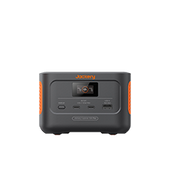What is a Container House?
(1) Definition and Origin
Container houses are an innovative and sustainable approach to housing, with their roots deeply embedded in the history of architectural evolution. The idea was first introduced in the late 1960s by an English architectural critic, Reyner Banham, who envisioned container ports as symbols of technological advancement in urban settings[2]. Banham's vision of shipping containers was akin to a "plug-and-play" building design, which gained massive popularity among people.
This concept took a significant leap in 1956 when Malcolm McLean invented shipping containers to promote international shipping. However, the transformation of these containers into living spaces was never recorded until 1987, when Phillip Clark patented his method for converting steel shipping containers into living quarters. This marked the inception of container homes, a trend that has seen a rapid surge since then[3].
The first official container home, owned by Phillip Clark, was recorded in November 1987. His patent detailed the modification process of shipping containers into living spaces. Although Clark was the first to record this innovation officially, the idea had been in the air for some time. As early as the 1970s, an architect in the UK explored the concept in his thesis and even constructed buildings from containers, which stand to this day[3]. Today, container houses are a testament to the sustainable reuse of materials, offering a unique blend of style, functionality, and environmental consciousness.
(2) Construction Process of Container Houses
First things first: You need to plan and prepare a design before even thinking of building the house.
The next step is to obtain different permits and legal permissions, as you can land in trouble otherwise. Now, when you have the material and the permission, it is time to start laying the foundation of living off grid UK. Modify the container to include openings for windows, doors, and internal passageways, and then securely assemble it on the foundation. The moment you are done with installing the structure, it's time to install utilities, including electrical, plumbing, and HVAC systems, to comply with all the safety protocols. Also, remember to add the necessary insulation to your container for living off grid UK comfortably.
(3) Advantages of Container Houses vs. Traditional Homes for Off-Grid Living
Container houses offer a sustainable, cost-effective, and flexible alternative to traditional homes. Their eco-friendly nature stems from recycling shipping containers, reducing waste and demand for new materials.
They are generally more affordable due to lower initial costs and the potential for DIY construction, coupled with reduced labour costs due to their modular nature. The construction process is notably quicker, and the structures are inherently strong, weather-resistant, and durable. The modularity of container homes offers immense flexibility in design and scalability, with the added benefit of potential mobility. Lastly, container homes stand out with their unique, modern aesthetic, offering a distinct living experience that aligns with sustainable and innovative lifestyle choices.
What to Look for When Living in an Off Grid Container House?
Living off grid UK in a container house is indeed a fulfilling and sustainable lifestyle choice. However, this off grid gaming is not as easy as it may seem. In reality, you will require careful planning alongside considering various factors to make your experience comfortable and environmentally friendly.
Here are the major aspects to consider when you are living off grid UK in a container house.
1. Site Selection
The first and foremost thing to do is to choose the right site for your living. Ignoring the importance of site location will only come to haunt you at some point down the line. That is why researching the zoning laws, building codes, and any restrictions specific to container homes in that area should be your top priority. Also, look deeply at the terrain, access to resources, and potential risks like flooding or wildfires to set up the house at the right location.
2. Energy Generation
When you sign up for off-grid living, you need to see whether your container house will be fit for solar energy generation. This is due to the fact that you will need consistent and reliable electricity for living off grid UK.
3. Water Supply
Finding a reliable and consistent stream of water is also a prerequisite of living off grid UK. That is why you need to check if you have legal rights and the possibility of getting a water connection in your living area.
4. Waste Management
Among other things, do not forget to have a reasonable arrangement of waste management in your container home. Composting toilets are a popular choice for living off grid UK due to their ability to reduce water usage and produce compost that can be used for gardening. Also, plan for the disposal or recycling of household waste.
5. Insulation and Climate Control
Choose high-quality insulation materials suitable for your climate to maintain a stable indoor temperature in your container home.
6. Ventilation
Proper ventilation is also needed to prevent moisture buildup and maintain air quality, which can lead to mould and structural damage in the container.
7. Emergency Preparedness
Never compromise on having emergency protocols in your home. This includes having a well-stocked first-aid kit, a plan for emergency communication, and supplies like food, water, and medication to last through unexpected situations.
Solar Generators as Infrastructure for Off-grid Container Living
A solar generator is the most important thing you need for living off grid UK. This power source will bridge the gap between traditional homes and container houses. Here is why you need a reliable and efficient portable generator UK for living off the grid in a container home.
1. Powering Household Appliances
Running electrical appliances, including refrigerators, lighting systems, fans, small electronic devices, and others, require a reliable power source that is provided by an off grid solar system.
2. Water Pumping and Filtration
In order to solve your water needs, a solar generator is necessary so you can power water pumps and filtration units to have a self-sufficient lifestyle.
3. Off-grid Cooking
A solar generator is the perfect equipment to power kitchen appliances, making off-grid cooking more convenient.
4. Communication and Electronics
Solar power stations also help you in charging electronic devices used for communication. Powering these devices helps you connect with the world and living off grid UK life in a much better fashion.
5. Medical Equipment
Without having urgent medical equipment in your container home, you would take a big risk. That is where solar power stations come in, as they help you run different medical equipment, including CPAP machines, blood pressure monitors, or refrigerators for storing medication.
6. Maintenance and Repair
Solar generators are also great assets for the maintenance and repair of many equipment. Let's say you have to repair any electronic or mechanical equipment. In such a case, a solar generator will power the devices used in the maintenance process, thus making your life easier.
7. Outdoor Applications
Solar generators are not just for powering equipment inside your container home. In fact, they are an excellent resource for running outdoor appliances, including outdoor lighting, electric fences, small-scale irrigation systems, and even a complete outdoor lifestyle. Many people also prefer off grid camping as they rely on an off grid campervan to embrace a remote lifestyle.
Key Points to Consider When Choosing A Solar Generator
Not all the solar generators are the same. Here are the things you need to consider in a solar system for living off grid UK in a perfect way.
1) Operability and Maintenance Costs
Going for a solar power station with low operability and maintenance cost will save you from a lot of trouble. Always go for brands like Jackery that bring these costs close to zero.
2) Size and Number of Solar Panels
Another important thing to consider is the size and number of solar panels in the system. This has to be decided based on the power that is needed and the size of the battery that needs to be charged with these panels.
3) Power, Capacity and Expandability
Choosing solar panels with more power, capacity, and the ability to be expanded will help you power a whole lot of devices without running out of electricity. The expandability feature of power stations allows you to scale up your setup as per your energy consumption and budget while living off grid UK.
4) Quietness and Lack of Interference
Try to get power stations that do not disturb the tranquillity of your living off grid UK in a container with excessive noise.
5) Performance Considerations
Also, try to prefer models that offer high drop resistance, durability, and ability to operate in a wide range of temperatures.
Jackery's Off-Grid Living Power Solution
Jaclery has a wide range of off grid solar systems that will increase the appeal of living off grid UK. Here are our top models:
1. Jackery Solar Generator 1000 Plus
The Jackery Solar Generator 1000 Plus is a mighty powerhouse offering an unparalleled charging capacity of 1,260Wh. Let alone a moderate lifestyle. It is designed to meet the energy demands of the most adventurous off grid container houses.
Here are some of its standout features:
- High Capacity & Power: Bringing with it the capacity of 1,260Wh and an output of 2000W, this generator can power everything you need while living off grid UK.
- Fast Charging: It can be fully charged in under 2 hours using solar energy,which makes it popular among off grid Britians.
- Safety and Reliability: As Jackery Solar Generator 1000 Plus comes with an advanced lithium battery featuring dual-chip protection and temperature detection, you get extremely safe and reliable operations.
- Portability: Weighing 32 lbs with a foldable handle, the Jackery Solar Generator 1000 Plus is specifically designed for easy transport.
- Extended Warranty: Comes with a 5-year warranty and up to an10-year service life, the Jackery Solar Generator 1000 Plus will be the long-time partner of your off-grid container living.
2. Jackery Explorer 2000 Plus
The Jackery Explorer 2000 Plus shows our commitment to innovation and quality. Here is why this generator is an excellent choice for off-grid container living:
- Expandable Capacity: It offers a base capacity of 2 to 12 kWh, making it versatile for various scenarios, from lifelong off grid living to long camping trips.
- Powerful Output: The Jackery Explorer 2000 Plus can power heavy-duty devices up to 3000W, making it capable of running almost all essential devices in your container house.
- Ultra-Fast Solar Charging: Features advanced IBC Technology, allowing for a fast solar charge in just 2 hours.
- Long-lasting Reliability: Comes with an outstanding LiFePO4 Battery that promises a 10-year lifespan.
- ChargeShield Technology: Utilises a unique variable-speed charging algorithm that boosts battery life by 50%.
- Smart App Control: Offers real-time status monitoring and customisationsettings through the Jackery App.
Wrapping-up
The transition to off-grid container living in the UK offers a promising life of sustainability and independence. However, the reliability of such an adventurous lifestyle hinges on the reliability of power solutions. Our off grid solar systems emerge as part and parcel of modern-day container living. They combine features like high capacity, rapid charging, and robust reliability all in one device. Opting for Jackery's solar generators is not just a choice but a commitment to a sustainable, self-sufficient lifestyle, ensuring that your container home is a beacon of comfort and eco-conscious living in the harmony of nature.
References:
- Could energy storage enable us all to go off-grid? Available at: https://tamarindo.global/articles/could-energy-storage-enable-us-all-to-go-off-grid/(Accessed: 25 January 2024)
- Shipping Container Homes: The History and State of the Trend. Available at: https://bdaa.com.au/shipping-container-homes-the-history-and-state-of-the-trend/(Accessed: 25 January 2024)
- The History of Shipping Container Homes. Available at: https://containerone.net/blogs/news/the-history-of-shipping-container-homes (Accessed: 25 January 2024)
Related Articles:
The Essential Guide to Choosing the Right Power Bank Charger for Small Houses in the UK
A Complete Guide to Solar Battery Storage for Off-Grid Cabins
































































































